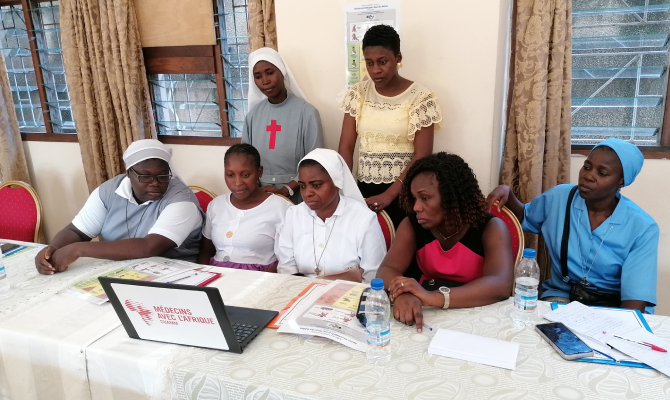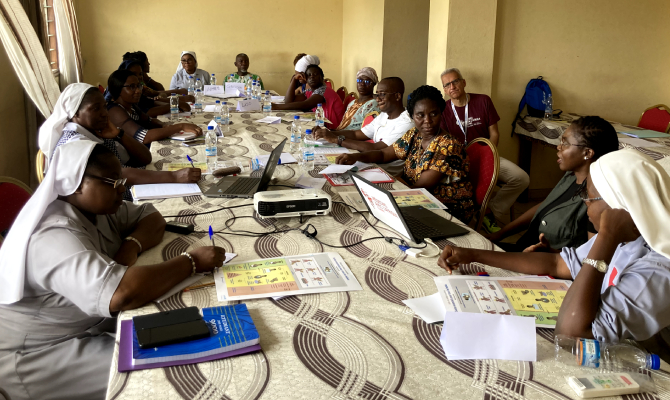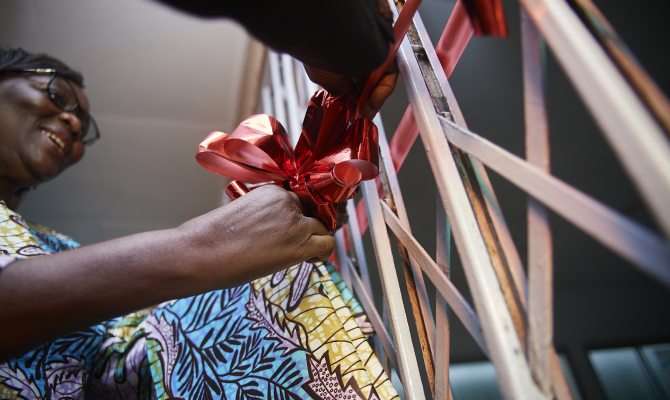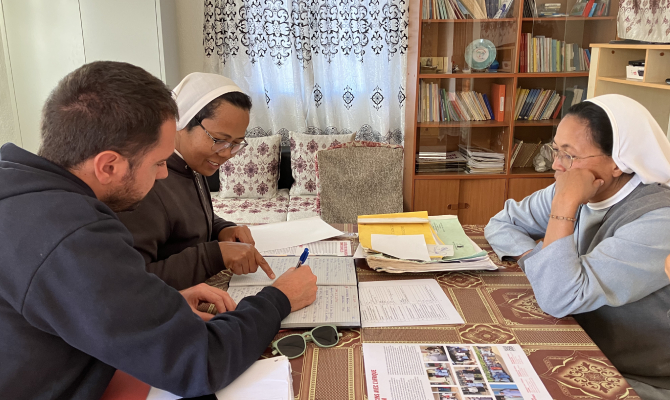Ensure quality health care at primary level by strengthening the capacities of those deployed on the frontline of healthcare service delivery is key to achieve long-lasting and effective results. This is the commitment leading the partnership between CUAMM and URSSCI, the Union of Religious in Health and Social Affairs in Ivory Coast.
In the last ten years (2012 to 2021), Ivory Coast has made significant progress in maternal, neonatal, and child health. Maternal mortality has decreased from 614 to 385 per 100,000 live births (LB), under-five mortality from 108 to 74 per 1,000 LB, and neonatal mortality from 38 to 30 per 1,000 LB. However, these rates remain high compared to the sustainable development goals (SDG). The leading causes of neonatal deaths are prematurity (31.6%), asphyxia (27.5%), and infections (20.2%) (Ivory Coast’s “Every Newborn” Action Plan 2018-2020). Achieving SDG target 3 by 2030 requires implementing high-impact interventions for mothers, newborns, and children.
In this context of improving neonatal care, the Ministry of Health, Public Hygiene, and Universal Health Coverage (MSHPCMU), through the PNSME and with CUAMM’s support, is implementing the “Health for All” project in 13 Christian faith-based health facilities. This project aims to contribute to improving the quality of health services amidst URSSCI health facilities to serve vulnerable populations, in line with national plans and priorities. Achieving this goal involves training and capacity building for health personnel in charge of managing the health centres.
As part of it, a five-days training course on essential neonatal care and resuscitation was held at the Regional Episcopal Conference of West Africa (CERAO) in Abidjan, in March. The course offered by Doctors with Africa CUAMM and funded by Eni was co-organized by the Coordination Directorate of the National Program for Maternal and Child Health (DC-PNSME).

Thirty healthcare workers from 13 healthcare facilities of the Union of Religious in Health and Social Affairs in Ivory Coast (URSSCI) participated in the training that aimed at strengthening the clinical knowledge and skills of participants in the proper management of newborns. Among the activities performed: newborn resuscitation within the “Golden Minute,” administration of essential newborn care, infections prevention and control.
2 national paediatric trainers from the PNSME in collaboration with 2 international paediatric trainers from CUAMM in-person, engaged the attendees using a participatory approach based on theoretical and practical learning. The theoretical phase was based on teaching techniques including questions and answers, brainstorming, illustrated lectures, and discussions while practical demonstrations on anatomical models supported learning activities on essential care, neonatal resuscitation and nasogastric tube placement.
«The training we are holding are not only a fruitful occasion for health workers and providers to improve their competencies but also a mean to pursue the objectives set by the Ministry of Health who called for quality health services for all» said Dr N’guessan Rebecca paediatrician at PNSME who concluded «By supporting the PNSME in the implementation of this activity, CUAMM is enabling health workers at Primary Contact Public Health Establishments ESPC (Etablissements Sanitaires Publics de Premier contact) to improve the care of mothers, newborns and children»
The participants were assessed through initial, mid-course, and final questionnaires and gained a certificate of participation. The final evaluation highlighted the need to continue the capacity-building process for healthcare workers. Further and regular on-site theoretical and practical training sessions are already scheduled for the next months, in collaboration with the Coordination Directorate of the National Program for Maternal and Child Health and international neonatology experts, in order to improve the capacity of facilities to reduce maternal and neonatal mortality in Ivory Coast.





